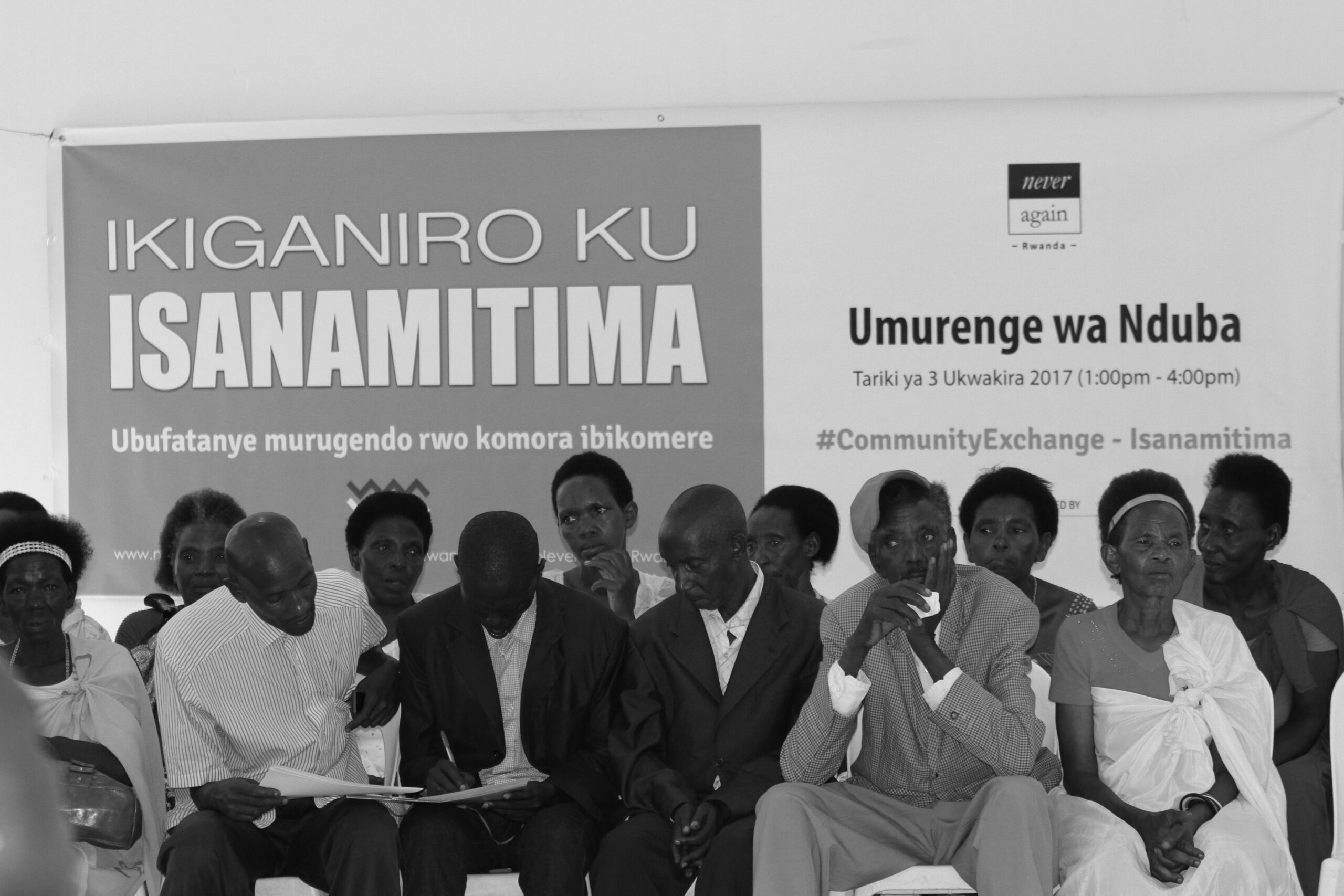Florence Batoni, Peacebuilding Program Coordinator, speaks to Peace Insight about community exchange platforms as a means to sharing the healing process with community stakeholders.
Tell us about the community exchange? Community exchange is one of NAR’s platforms where members of spaces for peace who are undergoing trauma healing meet with community members and opinion leaders as well as local leadership to share their experiences in the process of healing. The recent community exchange organized in Nduba sector brought together members of spaces for peace from Nduba and youth from World Mission to share their experiences through personal testimonies from adults in Nduba and through drama by youth from World Mission. These experiences were shared in the presence of religious leaders, leadership of Nduba sector, community mediators and security organs among others. One of the benefits from this exchange was the recommendation from executive Secretary of Nduba who asked NAR to organize a 3 days training of local leaders on trauma healing. This is important because it is one way that NAR’s work will contribute to trauma informed leadership which will ultimately lead to a process of healing and future reconciliation. On the other hand, some religious leaders confessed that their biblical teachings have been limited in terms of healing because they don’t focus on relationship building of their followers, therefore the religious leaders committed to promote peacebuilding through integration of peace related issues into their preaching.
What are the objectives of the platform? The objectives of the community exchange are to promote awareness of societal healing program, reflect on the process of healing among members of spaces for peace, and provide a platform for members of these spaces to share their traumatic life experiences and their healing journey. Also, the exchange aims to create ownership of the influential opinion leaders about the program so that they support in the implementation and sustainability of societal healing program. Finally and the most important objective is to create strong synergy with other local organizations involved in peacebuilding and reconciliation initiatives as well other NGOs who are involved in other areas such as mental health, business development, agricultural among others. In this framework, community exchange links members of spaces for peace with key strategic institutions that support them to acquire integrated healing. In this context the exchange also supports in advocacy for participants suffering from chronic and mental illnesses to the respective authorities in the community such as mental health and social workers.
What are the expected outcomes? Through organizing community exchanges with members of spaces for peace, we are looking to create a strong synergy with other stakeholders that will support our members after the program’s phase out process. It is also used as a platform to advocate for particular issues raised by members of our spaces, create awareness and ownership of the societal healing program which will inform local leaders to develop trauma informed leadership strategies. Furthermore these exchanges are aimed at gathering feedback from stakeholders on NAR´s psychosocial support group approach which will inform future interventions with regards to this approach.
Why were the first community exchanges carried out in Nduba and Musanze? Nduba space for peace was established in 2015 and has made commendable progress in healing, and as the program is currently coming to the phase out process, they needed to be linked to their community through sharing their journey towards healing with the aim of raising awareness of the Societal healing axis among other members of the community who were not members of this space. As a result of this exchange Nduba sector executive requested NAR to conduct training for local leaders on healing, this way local leaders can be equipped with the skills and knowledge to support the space members and refrain from using wounding language.Musanze and Nyabihu spaces for peace are in their first year of their healing process. The spaces are comprised of homogenous and heterogeneous members, i.e. Musanze space for peace is exclusively made up of genocide survivors while Nyabihu space for peace is made up of community members from diverse backgrounds. These two groups have shown a steady progress in the process of healing, tolerance and reconciliation. Through this exchange participants will share individual experiences of their healing journey in order for each of the groups to develop an understanding of different wounds affecting each group and learn from individual experiences.
What are the sustainability plans for the spaces for peace after the phase out process? Through engaging space members with community members through platforms that engage them with stakeholders in the community, we are currently training them and planning to link them with institutions engaged in socio-economic projects.
The writer is the Peacebuilding Program Coordinator and can be reached via email at batonif@neveragainrwanda.org


